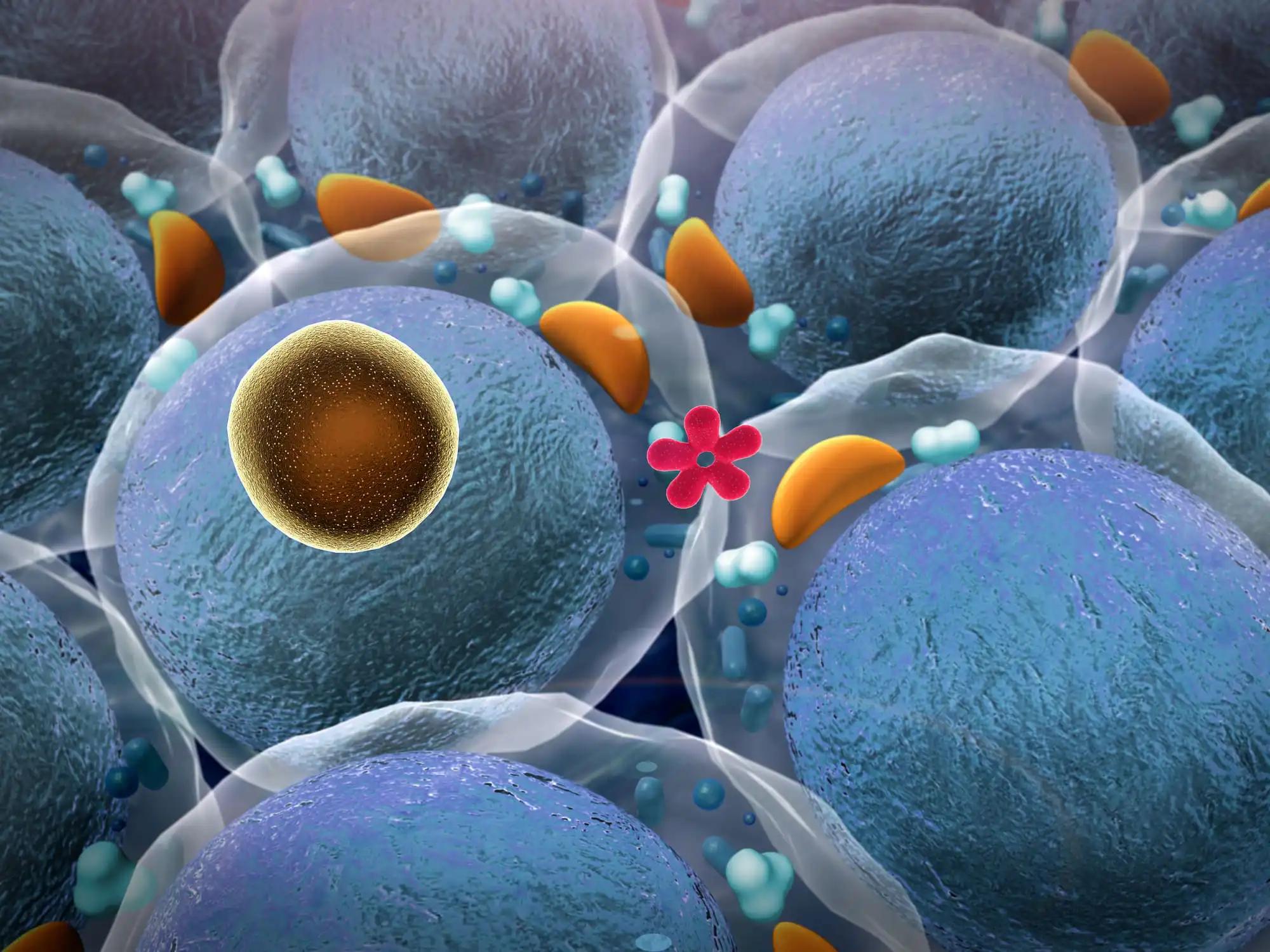KEY TAKEAWAYS
- The EVOKE-01 phase 3 trial aimed to compare the efficacy and safety of SG vs. docetaxel in patients with mNSCLC post-therapy.
- The primary endpoint was OS.
- Researchers found SG improved OS vs. docetaxel in patients with mNSCLC who were non-responsive to prior anti-PD-(L)1 therapy.
Patients with metastatic non-small cell lung cancer (mNSCLC) who experience disease progression following both platinum-based chemotherapy and anti-PD-(L)1 therapy have limited treatment options and a poor prognosis.
While the EVOKE-01 trial did not meet its primary endpoint of overall survival (OS) improvement in the overall population, prior response to anti-PD-(L)1 therapy has been shown to impact OS. Therefore, this analysis focuses on a key subgroup of EVOKE-01 participants, specifically those with disease non-responsive to their last anti-PD-(L)1-containing regimen.
Marina Chiara Garassino and the team aimed to evaluate the efficacy and safety of SG vs. docetaxel in patients with mNSCLC who had progressed after platinum-based chemotherapy and anti-PD-(L)1 treatment and were classified as non-responsive to their last anti-PD-(L)1-containing regimen.
In the EVOKE-01 trial, patients were randomized to receive either SG (10 mg/kg intravenously on Days 1 and 8) or docetaxel (75 mg/m2 intravenously on Day 1) in 21-day cycles.
The primary endpoint was OS, and key secondary endpoints included investigator-assessed progression-free survival (PFS) and objective response rate (ORR). This subgroup analysis focused on outcomes within the subset of patients classified as non-responsive to their last anti-PD-(L)1-containing regimen, further stratified by best response to the last anti-PD-(L)1 therapy (stable disease [SD] or progressive disease [PD]) and histology (squamous and non-squamous).
The intent-to-treat (ITT) population included 63.5% (n=383) of patients classified as non-responsive to their last anti-PD-(L)1-containing regimen (n=192 SG; n=191 docetaxel). Baseline characteristics were balanced between the treatment arms within this subgroup.
In the non-responsive subgroup, the median OS was 11.8 months with SG and 8.3 months with docetaxel (HR, 0.75; 95% CI, 0.58-0.97). This OS benefit with SG was observed regardless of whether patients had SD (HR, 0.79; 95% CI, 0.55-1.13) or PD (HR, 0.67; 95% CI, 0.46-0.98) as the best response to the last anti-PD-(L)1-containing regimen.
Similarly, the OS benefit remained consistent across both squamous (HR, 0.62; 95% CI, 0.38-1.02) and non-squamous (HR, 0.79; 95% CI, 0.59-1.07) histologies.
The study concluded that SG showed a clinically meaningful OS improvement compared to docetaxel in patients with mNSCLC non-responsive to their last anti-PD-(L)1 regimen. This benefit was consistent across SD and PD responses to prior therapy and regardless of histology, suggesting SG may be a valuable treatment option for this patient population.
The trial was sponsored by Gilead Sciences.
Source: https://cattendee.abstractsonline.com/meeting/20598/presentation/727
Clinical Trial: https://clinicaltrials.gov/study/NCT05089734
Garassino MC, Juan-Vidal O, Felip E, et al. (2024). “Sacituzumab Govitecan vs Docetaxel in Patients with mNSCLC Non-Responsive to Last Anti-PD-(L)1 Regimen: EVOKE-01.” Presented at: World Conference on Lung Cancer (WCLC); September 9, 2024; Singapore.



